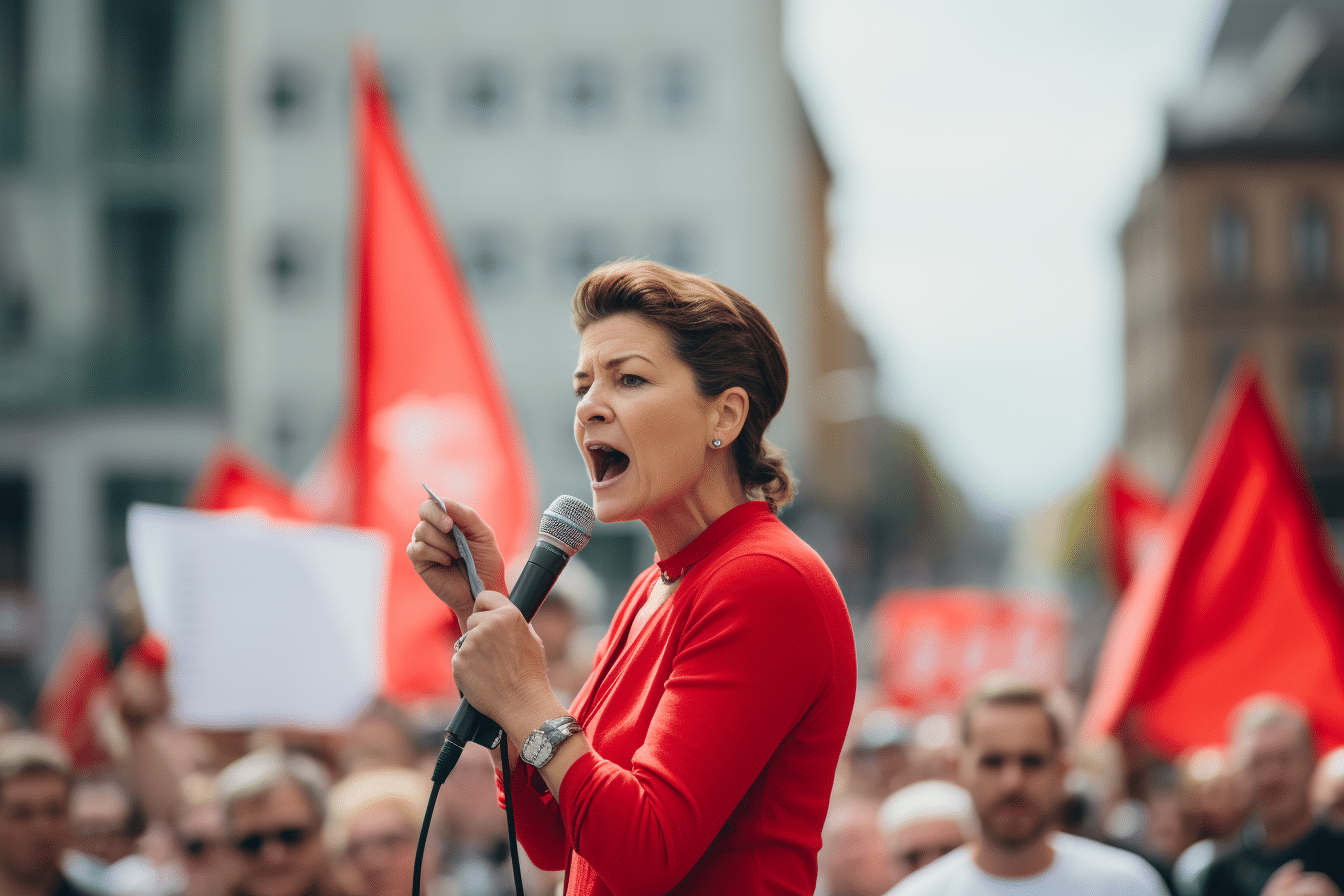Sahra Wagenknecht, former parliamentary group leader of The Left party, remains one of its most outstanding political figures in Germany. For some time now, she has been contemplating the establishment of her own party. Recent interviews suggest that she could soon put this plan into action, detailing the primary concerns of a potential Wagenknecht-led party.
Although still officially a member of The Left party and consistent with her previous rhetoric, Wagenknecht has stated that she will decide “by the end of the year” whether to leave The Left, a party she served as its parliamentary group leader until 2019 and still remains one of its most prominent figures. However, recent interviews seem to indicate that the decision is already made. The “Bild” newspaper ran a headline stating: “Decision Made: Wagenknecht Initiates Her Own Party.”
The newspaper cites close sources claiming that the party’s founding is planned after the state elections in Bavaria and Hesse. Wagenknecht called this the “perspective of the ‘Bild’ newspaper” in comments to the German Press Agency, emphasizing that a final decision is still pending. Close associates also informed the German Press Agency that there were no current updates.
When asked by “Bild am Sonntag” about the main focus of her prospective party, Wagenknecht provided detailed information: Core topics would include a reoriented economic policy aimed at preserving jobs in Germany through increased state control; enhanced social justice through better wages and more support for the poor; “state-mandated price caps” and increased taxation of large corporations; and “a foreign policy that once again favours diplomacy over arms exports.”
Furthermore, the Wagenknecht party aims to promote open dialogue. “Individuals are marginalized as soon as they deviate from the mainstream,” said the politician. “Those who want to regulate and limit immigration are branded as Nazis.” Citizens are “morally condemned.” She believes this is a reason for the success of the AfD (Alternative for Germany) and feels that The Left has drifted away from the needs of low earners and the broader population.
In a conversation with the “Tagesspiegel” on Sunday, Wagenknecht hinted that the formation of a new party was imminent. Despite the immense effort required, she said, “I see a gap in the political system. Many feel unrepresented by any party and, out of desperation, vote for the AfD. It would be desirable if these citizens found a reliable political home again.”
When asked if she felt up to the demanding task of leading a party, especially after stepping down from her leadership position four years ago due to burnout, Wagenknecht had a clear answer. “I am quite resilient,” emphasized the 54-year-old. “Developing programs, representing a party, and advocating for our beliefs – that’s my strength.”
Current poll results could boost her confidence: In the Insa Politician Ranking, Wagenknecht currently holds the third position, behind Defense Minister Boris Pistorius (SPD) and Bavarian Prime Minister Markus Söder (CSU). In July, a report stated that a Wagenknecht-led party would be the strongest party in Thuringia with 25 percent approval, ahead of the AfD.
However, Wagenknecht emphasizes that traditional party duties would be too much for her to handle alone: “Establishing structures, organization, and 16 state associations – I can’t manage that.” But she has friends within The Left who would support her in this endeavour.




